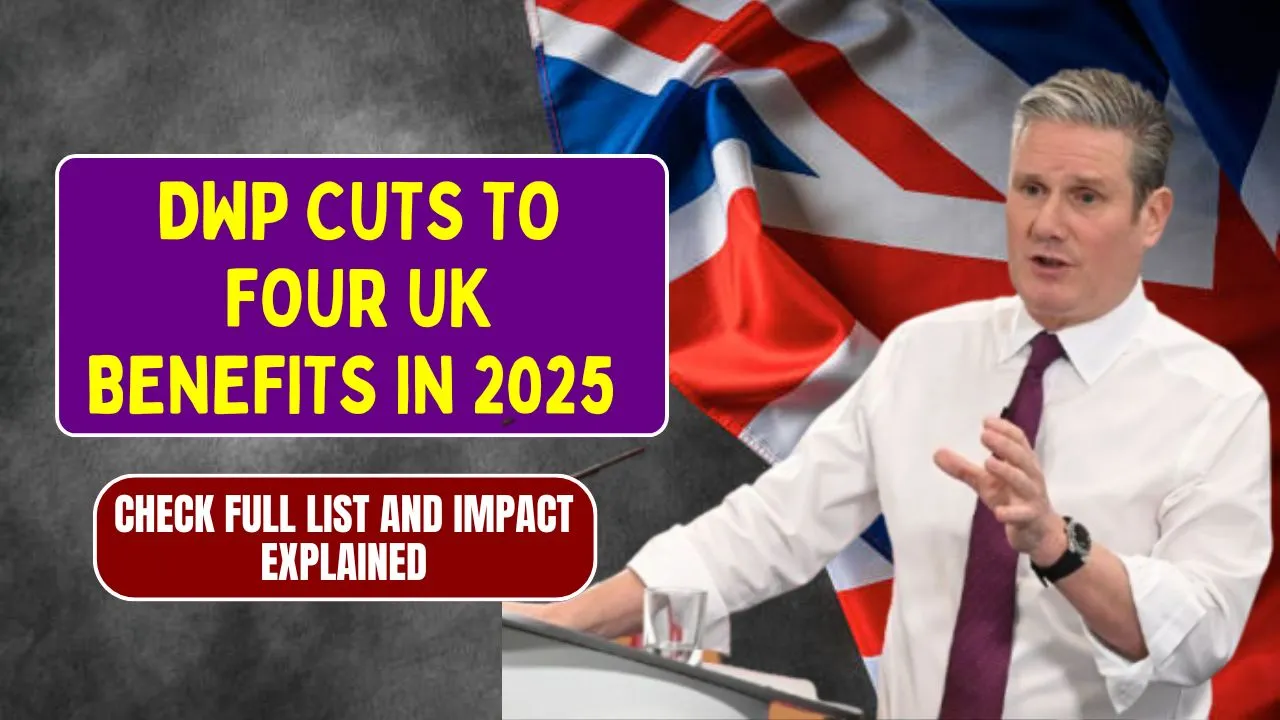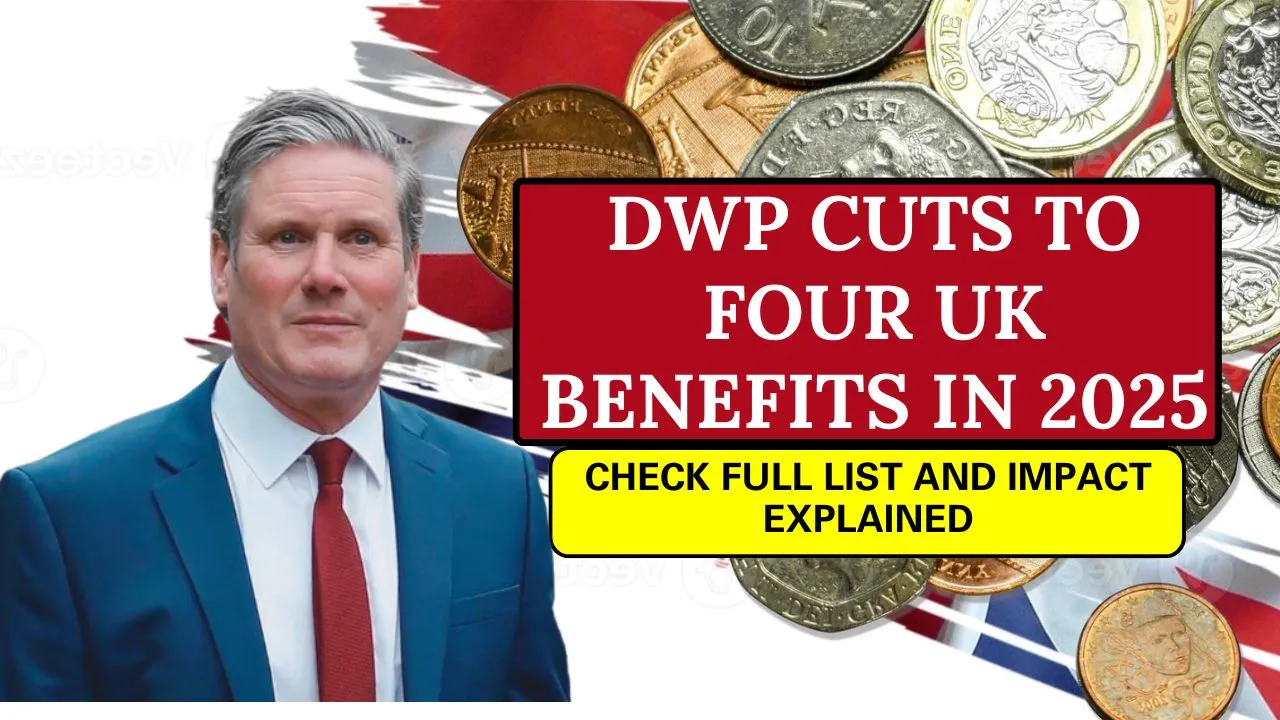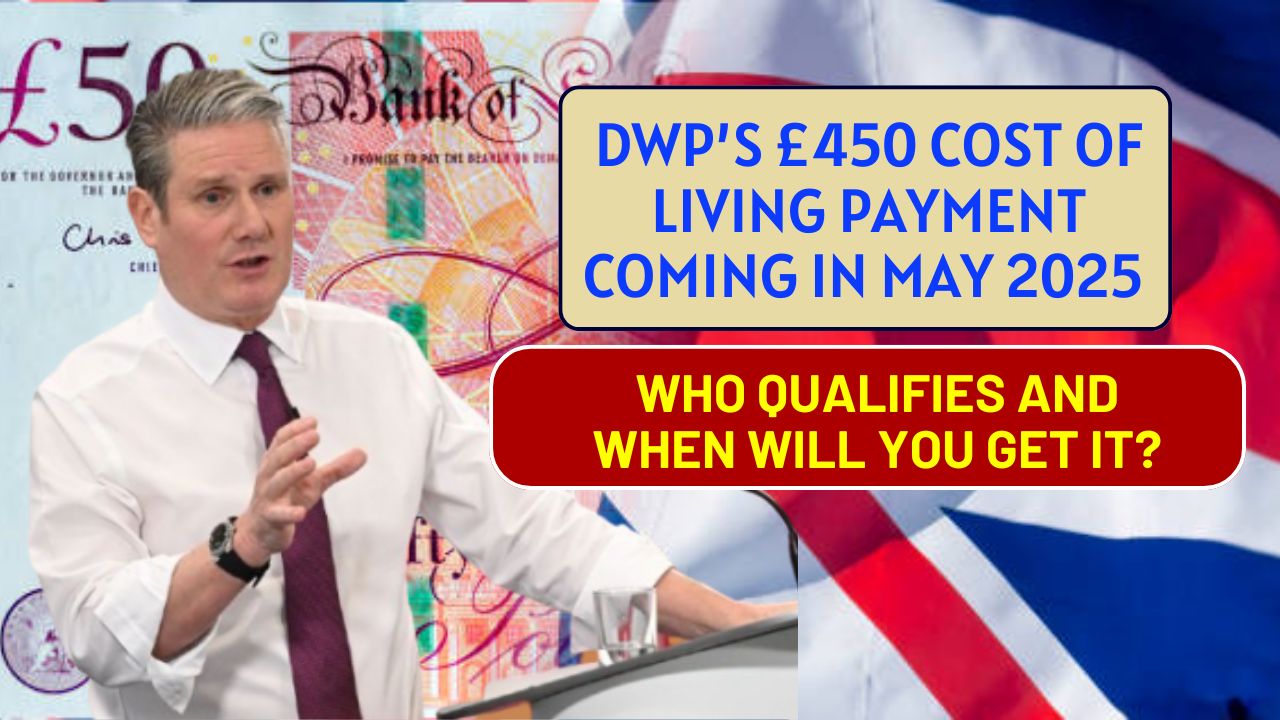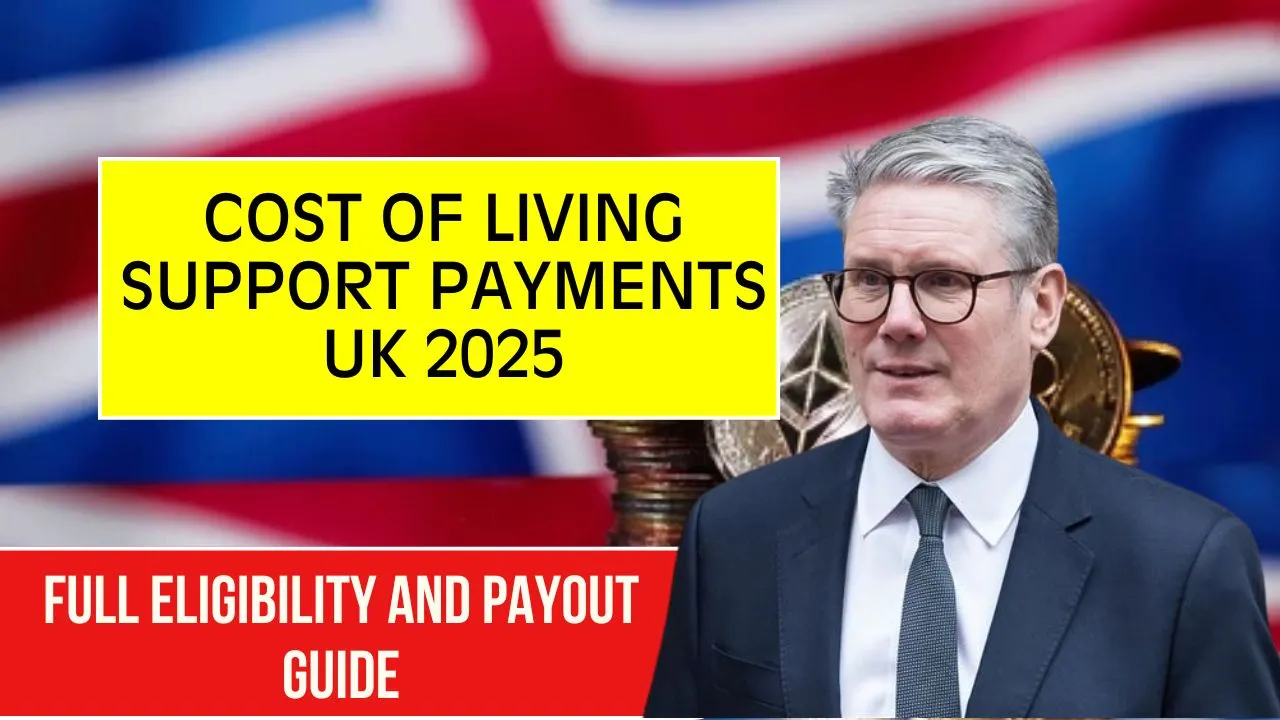DWP Cuts 2025: DWP Cuts 2025 mark a significant shift in the UK welfare system, as the government pushes forward with plans to reform several key benefits. The Department for Work and Pensions (DWP) has outlined reductions and rule changes that will affect millions of current and future claimants across the country. These changes are being implemented with the goal of saving £5 billion annually by the end of the decade.
This article provides a full breakdown of the upcoming DWP Cuts 2025, detailing how four major UK benefits—Universal Credit, Personal Independence Payment (PIP), Employment and Support Allowance (ESA), and Housing Benefit—will be affected. We also explain the new rules, timelines, and the likely impact on claimants. Whether you currently receive benefits or may be applying in the future, this guide explains everything you need to know.
DWP Cuts 2025
The DWP Cuts 2025 involve a mix of budget freezes, new eligibility rules, and structural changes to benefit systems. Key areas of reform include stricter assessments for disability-related benefits, migration to Universal Credit, and the introduction of a new “Unemployment Insurance” scheme to replace ESA and JSA. Many changes are set to begin from April 2026, with full implementation expected by 2029/30.
Overview Table of Key DWP Benefit Changes
| Benefit | Current Policy | Change |
| Universal Credit Standard Allowance | £92 per week (single, 25+) | Increases to £106 by 2029/30 |
| UC Health Element (Existing) | £97 per week | Frozen until 2029/30 |
| UC Health Element (New, from April 2026) | £97 per week | Cut to £50 per week, then frozen |
| PIP Eligibility | 8-point total score across activities | Must now also score 4 points on one single activity |
| ESA / JSA | Separate benefits | Merged into Unemployment Insurance (non-means tested) |
| Housing Benefit | Separate legacy benefit | All claimants migrated to Universal Credit by March 2026 |
Universal Credit Changes
Universal Credit (UC) will see both increases and reductions depending on the element involved. The Standard Allowance will rise gradually from £92 to £106 per week for single people over 25 by the year 2029/30. While this is a positive change, it is paired with significant cuts to the Health Element.
For those already receiving the Health Element, the payment will be frozen at £97 per week until 2029/30, meaning its real value will drop due to inflation. New claimants from April 2026 will see their Health Element cut to £50 per week—a near 50% reduction.
Standard Allowance Increases
The government plans to phase in increases to the Universal Credit Standard Allowance over five years. These adjustments aim to help low-income households not eligible for health-related support. A single person over 25 will see their weekly payment rise from £92 in 2025/26 to £106 by 2029/30, with equivalent percentage increases for couples and younger claimants.
This change is expected to benefit 3.9 million households, with an average gain of £265 per year.
Health Element Cuts
The Health Element is undergoing one of the most substantial cuts under DWP Cuts 2025:
- Existing claimants will see their weekly amount frozen at £97, leading to a reduction in real terms.
- New claimants from April 2026 will only receive £50 per week, a reduction of nearly 50%.
- A consultation is also underway to restrict access to this element to those aged 22 and above, which would limit support for younger claimants. Instead, they would be offered job training or education under a “Youth Guarantee.”
Age Restrictions
In another controversial move, the government is considering delaying eligibility for the Health Element until claimants turn 22 years old. This change, still under consultation, would direct younger claimants towards employment or training programs instead of financial support.
This could significantly affect vulnerable young people, particularly those with long-term health issues who may be unable to participate in such schemes.
Personal Independence Payment (PIP)
PIP is receiving a major overhaul under the DWP Cuts 2025 plan. The changes focus heavily on eligibility and assessment procedures:
Stricter Eligibility Requirements
Starting November 2026, claimants will need to score at least 4 points on a single daily living activity, in addition to the existing 8-point overall threshold, to qualify for the standard rate. This change could lead to 370,000 people losing PIP during reassessment, and up to 430,000 future claimants being denied under the new rules.
Assessment Process Changes
The Work Capability Assessment (WCA) will be fully scrapped by 2028, and replaced with a single assessment based on PIP criteria. The number of face-to-face assessments will increase, and Universal Credit’s Health Element will also be tied to PIP assessments moving forward.
Employment and Support Allowance (ESA)
ESA will be merged into a new benefit called Unemployment Insurance, which also replaces New Style JSA. This benefit will:
- Be non-means tested, but only available to those who have paid enough National Insurance contributions.
- Pay a fixed weekly amount of £138.
- Require most claimants to actively look for work, although accommodations will be made for those with serious health limitations.
ESA reassessments, which were suspended during the pandemic, will return for most claimants, except those under special rules like end-of-life care.
Housing Benefit
Housing Benefit is being phased out and replaced by Universal Credit for all claimants:
- The full migration to UC will complete by March 2026.
- The government has committed to investing £2 billion into affordable housing in 2026-27, aimed at delivering 18,000 new homes.
- Although this isn’t a direct cut, some tenants may lose transitional protections or face delays during migration.
Timeline of Implementation
| Date | Change |
| April 2025 | 1.7% increase in benefit rates |
| June 2025 | Consultation period ends for welfare reform |
| End of 2025 | “Right to Try” guarantee introduced |
| April 2026 | UC Standard Allowance increases begin |
| April 2026 | Health Element reduced to £50 for new claimants |
| March 2026 | Migration from Housing Benefit to Universal Credit completes |
| November 2026 | New PIP eligibility rules take effect |
| 2028 | WCA fully removed, single assessment system in place |
| 2029/30 | Final phase of UC Standard Allowance increases completed |
Impact on Claimants
The DWP Cuts 2025 will have serious financial consequences for many claimants:
- 2.25 million UC claimants will lose an average of £500 per year.
- 370,000 PIP recipients may lose eligibility during reassessments.
- 730,000 future UC Health Element recipients may lose out on £3,000 per year.
- Households benefiting from the UC Standard Allowance increase will gain, but this won’t fully offset losses for many others.
Those with mental health issues, chronic pain, or age-related conditions may be especially vulnerable to these changes.
Government Rationale
The government argues that benefit spending is becoming unsustainable, with projections showing costs rising to £70 billion annually by 2030. The number of PIP claims is also expected to more than double this decade. Ministers say the current system discourages work and requires reform to promote long-term employment opportunities while still supporting the most vulnerable.
Where to Get Help
If you are concerned about these changes:
- Visit GOV.UK for official updates.
- Contact Citizens Advice for free, independent support.
- Use Turn2us for benefits calculators and guides.
- Contact disability charities like Scope for tailored assistance.
FAQs
When do the DWP cuts take effect?
Most key changes start from April 2026, with full implementation by 2029/30.
Will my benefit be reduced immediately?
No. Changes for existing claimants, such as PIP and the UC Health Element, will happen gradually or at the point of reassessment.
What is the “Right to Try” policy?
It allows claimants to explore employment without risking immediate benefit reassessment or cuts.
Is there support for vulnerable groups?
Yes, the government promises an “additional premium” for those with severe, lifelong health conditions, though details are limited.
Final Thought
DWP Cuts 2025 represent a major shift in how welfare works in the UK. These changes will impact millions, especially people with disabilities, young adults, and those with long-term health issues. Staying informed and seeking support early is key to navigating the road ahead.
Share this guide to help others understand what’s coming—or leave a comment to share your experience. For more updates, check your eligibility regularly and explore related support options.











